Published Apr 5, 2023
My First Contact: How the Kelvin Universe Led Me Back to the Beginning
One fan shares how she charted a course of strengthening her bond with her mother through Star Trek.
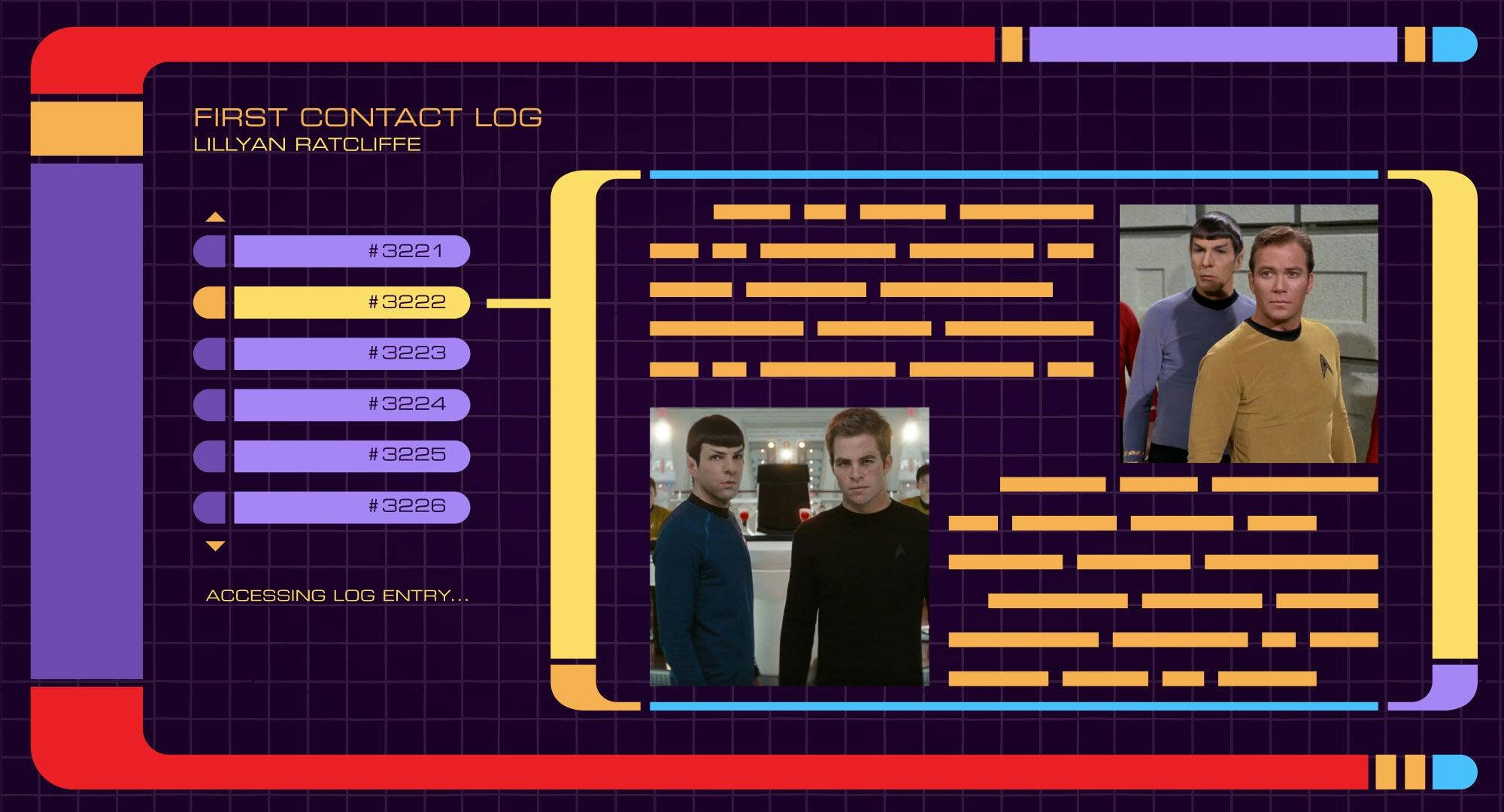
StarTrek.com / Rob DeHart
As we grow ever closer to the canon date of First Contact Day in real time, I admit a part of me still feels sadness that my mother won’t live to see the celebration and whatever special episodes or specials are produced for it. Her death still stings nearly two years later, but by remembering how we managed to bond over Star Trek even though we were approaching it from different perspectives and with different interests, I can feel closer to her. My unique way into Star Trek fandom compared to my mother’s more direct path also says something about us as individuals.
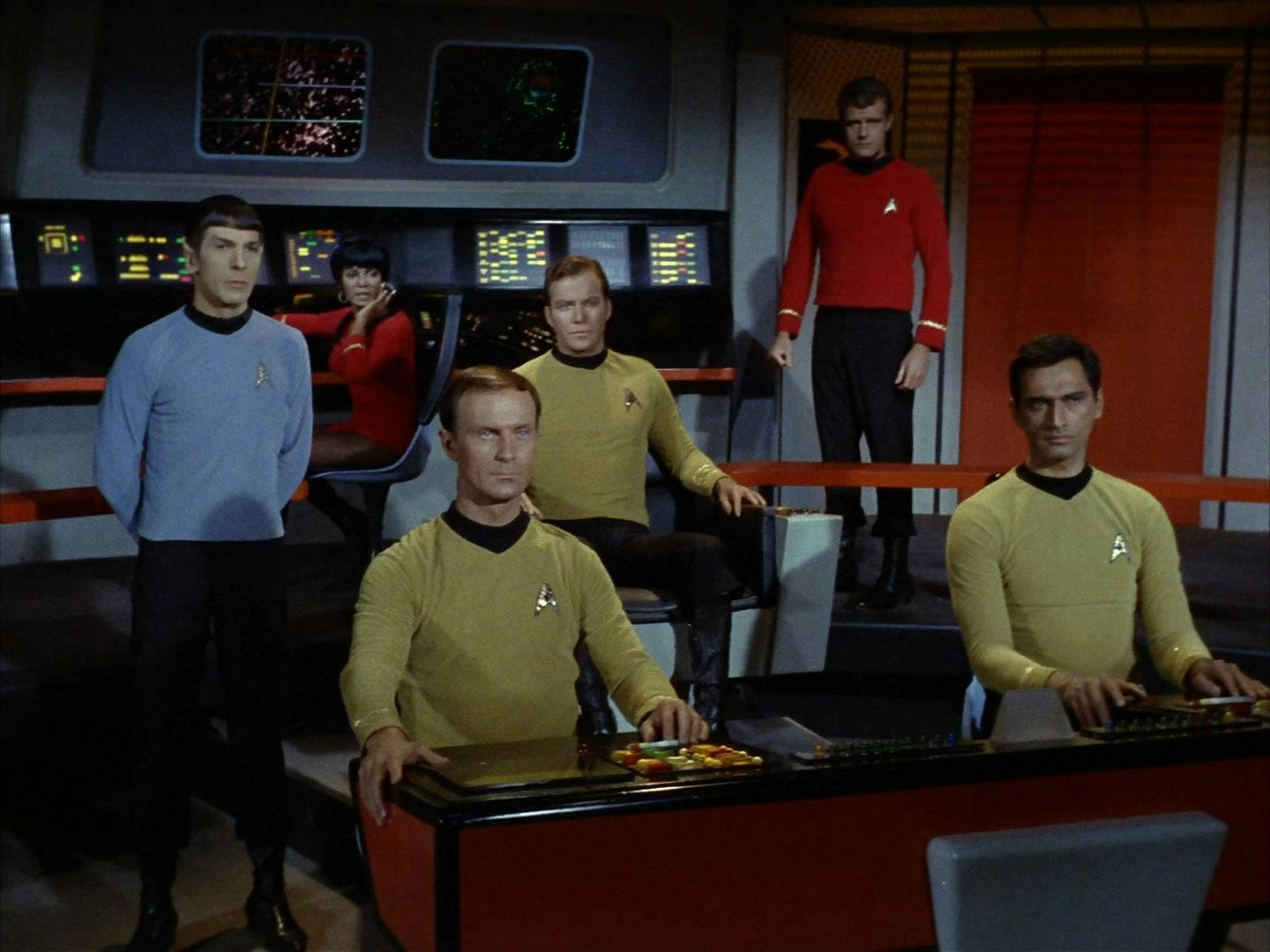
StarTrek.com
While most fans, who were raised by parents who loved Star Trek, watched reruns with their parents or watched it alongside their parents, I was not one of them. My mother was born in the 1960s, right as The Original Series started, so she grew up watching reruns of it and watched Star Trek: The Next Generation as it aired. Motherhood disrupted her viewing, and I grew up with LeVar Burton as the "Reading Rainbow Guy” not Geordi La Forge. Even the episode where he showed the Reading Rainbow audience behind the scenes of The Next Generation didn’t change that for me nor did I begin watching Star Trek because of that episode. Neither did I start watching Star Trek: Voyager when UPN started, bringing the total number of channels accessible to our middle of nowhere town in Florida to 10. As a child, I was determined to be taken seriously. I was raised by my grandparents — as my mom worked long hours as a single mother — and grew up knowing that I was autistic in a world that was not easy for autistic people to navigate. I was determined to prove the naysayers wrong – yes, my brain was different from theirs, but who else read a decent chunk of the standard classics before middle school? Who could talk about the problems of succession various monarchies faced over centuries? Cultural osmosis did allow some Star Trek to enter my mind unknowingly throughout the years and I remember my mother mentioning when various cast members died.
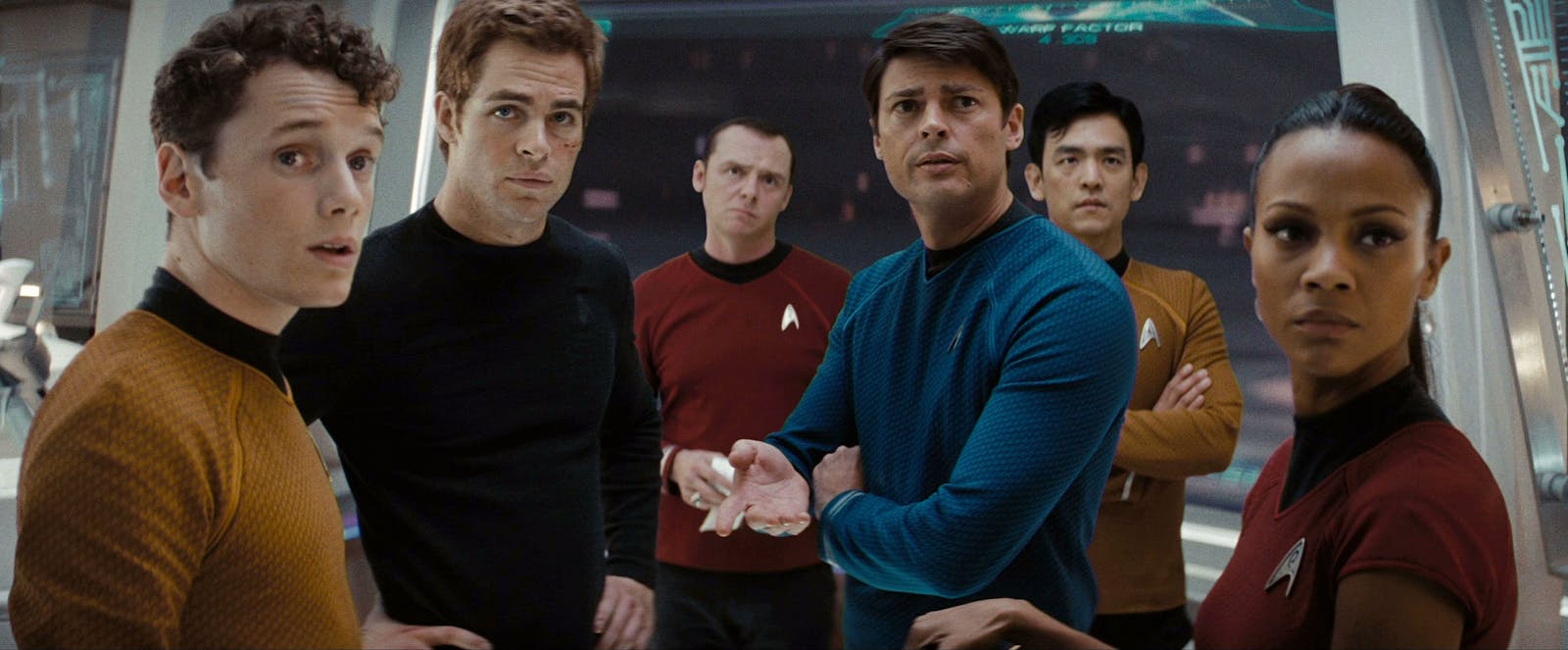
startrek.com
Yet it took until the announcement of the first J. J. Abrams film for me to watch any Star Trek. I remember my mother being excited for the film. She was never a purist when it came to media. If someone could reinterpret something in fun new ways or to fix something from the original that hadn’t aged well, my mother was for it. As someone who originally got inspired by the scientific future of The Original Series, she understood things would, could, and should change as new needs arose to improve things for everyone. My diagnosis of type 1 diabetes as a preteen and the subsequent decades plus of new science rewriting my retreatment plans and options would echo the scientific progress Star Trek would show. On the other hand, I still get irritated by changes in media, not quite to purist levels, but I do notice them and will mentally shake my head at the ones that seem pointless or that take away from the better parts of the original. My mother found DVDs for The Original Series at our local library because I wanted to see the source material for the new movie.
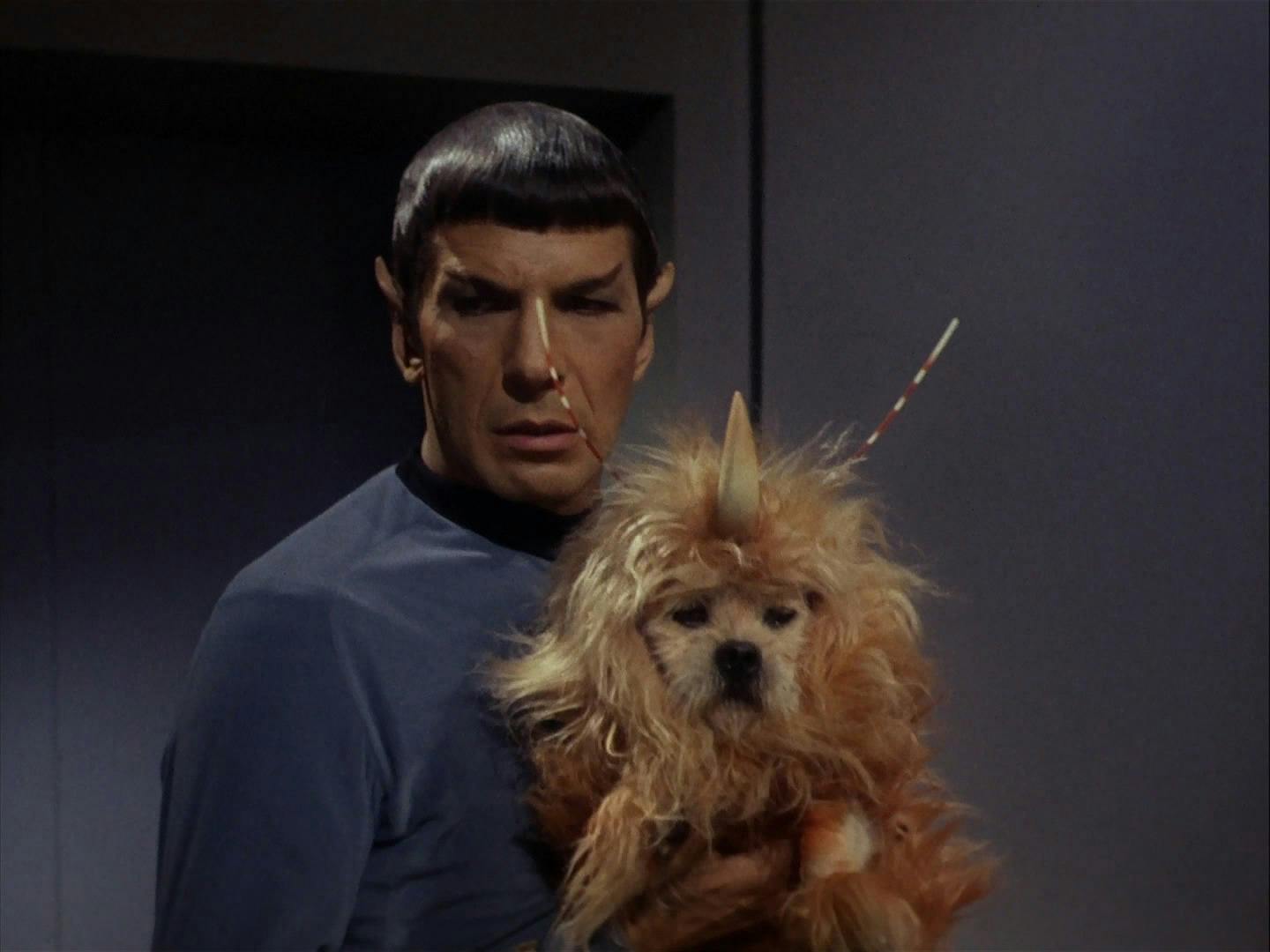
StarTrek.com
Years of thinking Star Trek was what anti-fans sometimes dismiss it as — odd plots, bad costumes, gender inequality, questionable scripts — gave way to a show that clearly had been made with talent and effort, even if time made somethings odd or awkward. Yes, sometimes my mother and I would share a look at some special effect that was laughable to modern audiences or groan when writing could have been better, but as someone raised on older PBS specials and original Scooby Doo, The Original Series hit my nostalgia buttons hard. Costumes that were made of placemats, papier-mâché everywhere, dogs in bad Halloween costumes; it felt right. Combined with writing that had hidden depths most of the time, where social issues that I was watching unfold in real time, seeing technology come to fruition decades after it was first imagined, knowing how such a diverse cast inspired so many who are still underrepresented in media to this day, and the sheer fun most of the performers had working on the show made it even more impactful than I thought it would.

StarTrek.com
Star Trek: The Animated Series though might edge The Original Series out as my favorite. The sometimes-clumsy animation feels right to me — it's not about the glitz and glam; it's about pushing the envelope, not only in terms of storytelling, but in terms of creativity. Finally getting other species as main members of the cast, seeing designs that would never have been possible within the budget or available technology of the live-action shows, and more made it feel like MY Star Trek. Let’s throw in underwater scenes; we don’t have to worry about the logistics of filming! Have an anthropomorphic cat woman on the Bridge; save a ton on makeup and time! Uhura and Chapel saving the men and solving the mysterious disappearances of thousands of Starfleet crews; awesome! Even as technology made it easier to replicate these ideas in its live-action counterparts, that odd little animation gave Star Trek its first Emmy and set us up for the future. My mom never got into this series as much as I did, but we could laugh about the weird color choices and over how many times the same person voiced different characters in one episode.

StarTrek.com
The Next Generation was also close to my mother’s heart. It echoed many of the things that she loved about The Original Series — a crew of unique individuals working together as equals to explore space, seeing creative species designs, exploring issues in ways to leave the viewer talking, and more — while adding in things that appealed more to my personal tastes — seeing characters undergo long-term character development, blending comedy with drama to make each more poignant, and actually getting more characters to focus on than the main crew. We still groaned over weird costume designs — RIP to all those bowling alleys that were invaded by Romulans — and tried to count all the Shakespeare references that could fit in one episode. We cheered for Spot, our beloved space cat, and debated the ethics of the Prime Directive.
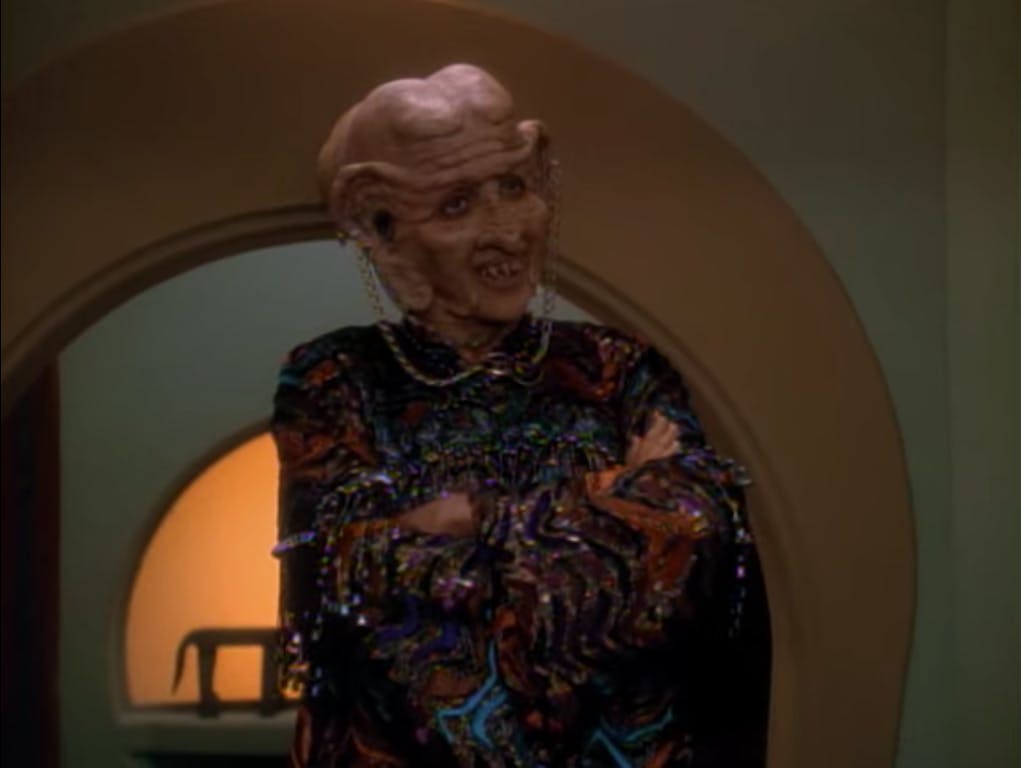
StarTrek.com
The next several series were ones we watched more as equals as my mother hadn’t been able to watch these as frequently. Star Trek: Deep Space Nine was more appealing to me, as a young woman who loved the intricate pacing and rich character dynamics that evolved nearly weekly. For my mother, it felt a bit too dark overall, as it seemed like Sisko and company kept fighting to make a better future for Bajor yet it seemed progress was much too slow and too minute. The Ferengi Feminist Revolution became one of our favorite plotlines as we got to see Ishka lead a social revolution, plus make enough Princess Bride jokes to make anyone think we had memorized the full script.
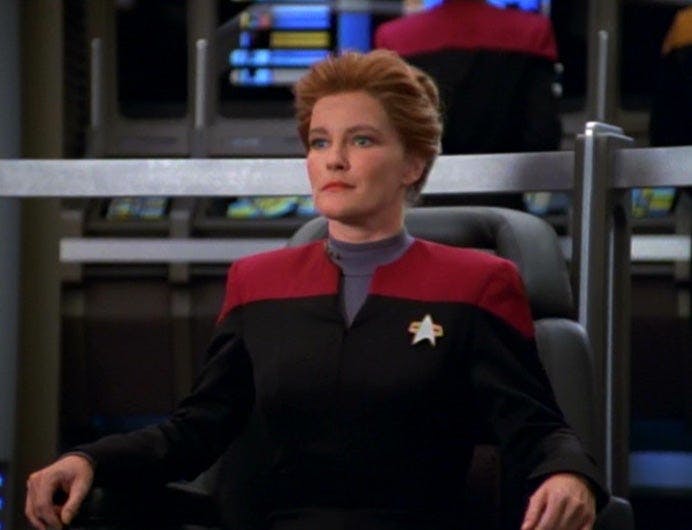
StarTrek.com
Seeing Janeway take charge to lead her crew home will always remind me of my mother — it often felt like she was trying to do the best she could in less-than-ideal circumstances — as the Voyager captain embodied the determination and inner steel my mom developed when trying to navigate an ever changing pharmaceutical landscape where new unexplored medications lay ahead of her much like the Delta Quadrant did for Janeway. Star Trek: Voyager gave us bits of old favorites — callbacks to other series, exploring what it means to seek out new worlds, debating the ethics of leadership, and developing deep bonds with the crew that would help them survive.
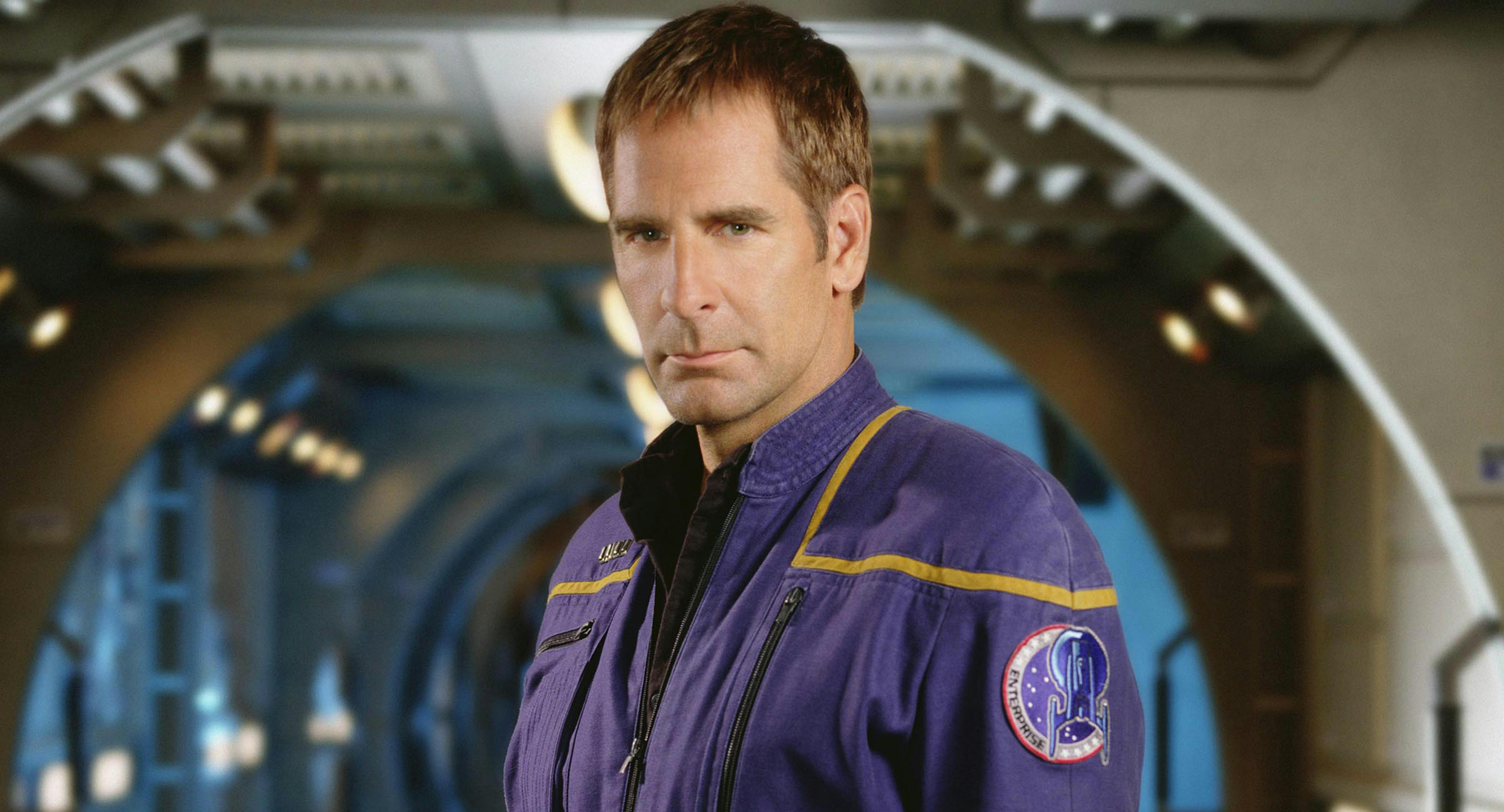
StarTrek.com
Unfortunately, my mother died before we could finish Star Trek: Enterprise together. She wanted to see Scott Bakula in her favorite science fiction franchise while I was invested in the Xindi plotlines. Yet we agreed that getting to see more ‘first contacts’ while humanity grew into the idealized utopia of The Original Series was really at the heart of what we wanted to explore — seeing what led to the Prime Directive being so important to Federation exploration and debating the ethics of that.
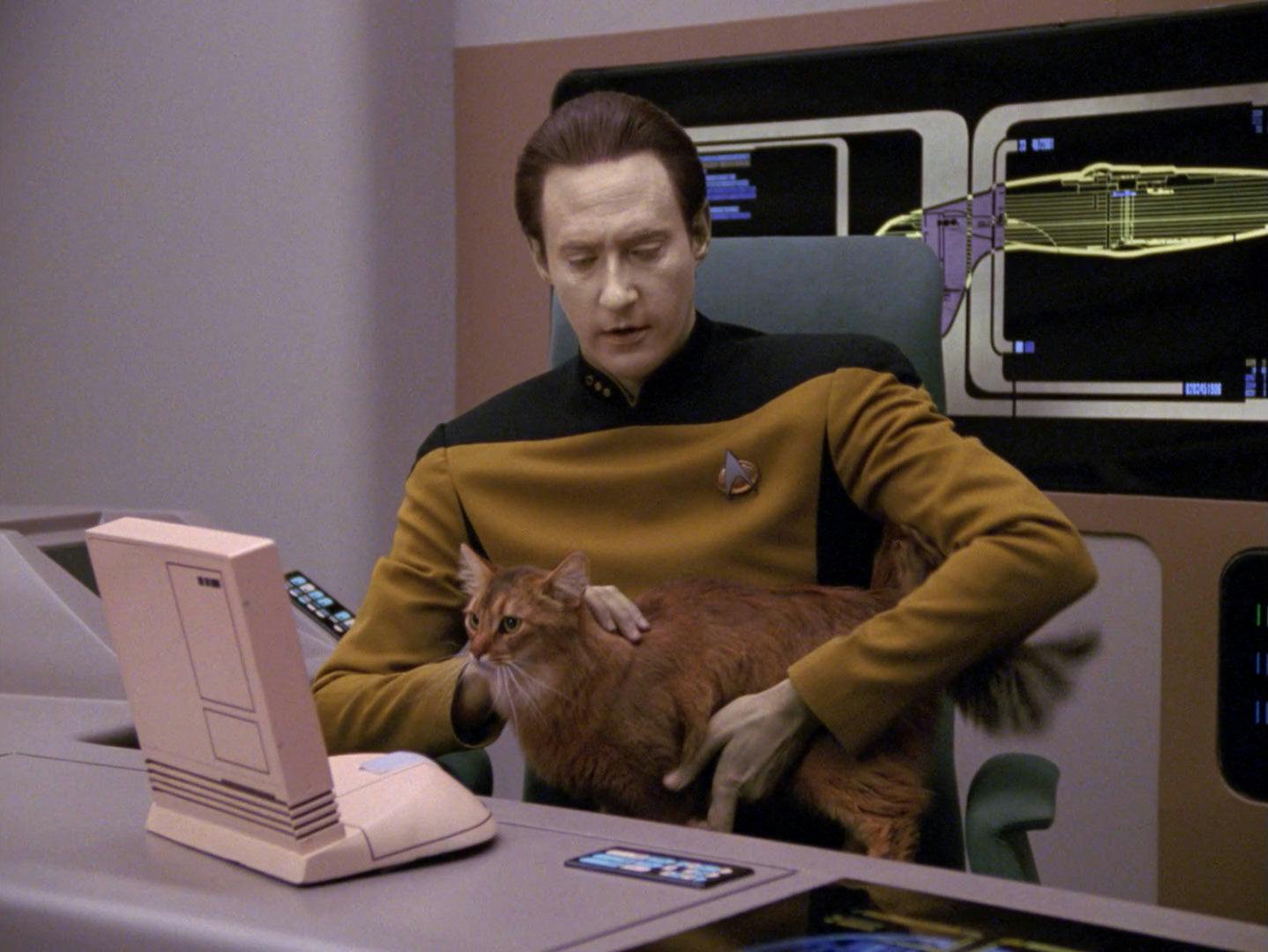
StarTrek.com
Although some Star Trek memories now tug at my heartstrings due to how they have become entangled with memories of my mother, my First Contact has also given me even more happy memories as I can recall our shared jokes about the franchise — Porthos just needing cheese-flavored dog food not actual cheese, Sisko refusing to play Q’s games, the sheer weirdness of species costuming versus barely any makeup to differentiate them from humans, Data being almost too human when it came to Spot, and more. Rest in the stars, Mom.
Lillyan Ratcliffe (she/her) is a fairly new Star Trek fan and very excited with the new directions it continues to take. She has a BA in History from Stetson University, a MA in Global History from APUS, and a MLIS from USF. She has written about Trek for WomenAtWarp and loves exploring the nuance of Star Trek.
Stay tuned to StarTrek.com for more details! And be sure to follow @StarTrek on Facebook, Twitter, and Instagram.
